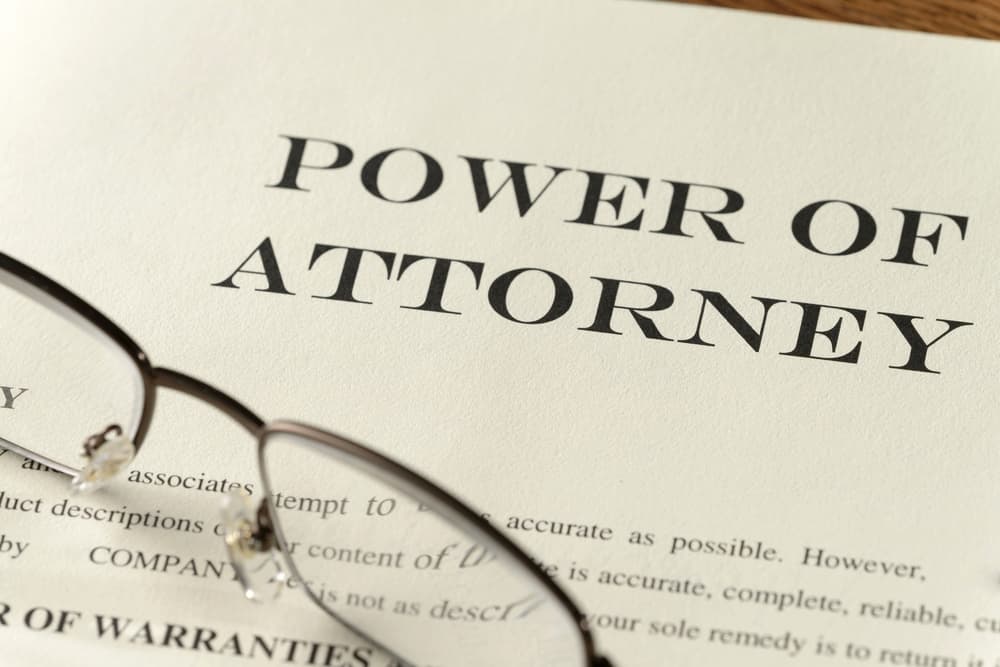Revoking a Power of Attorney
With a power of attorney, you can appoint another person to act on your behalf. However, in some cases, a particular arrangement might no longer serve your interests.
Posted on December 18, 2023

As long as you have the mental capacity to understand what you are doing and to make decisions, you can revoke your power of attorney at any time for any reason.
What Is a Power of Attorney For?
A power of attorney can protect you, as you have a responsible person acting on your behalf if you need help. When someone you genuinely trust is your agent, the arrangement can be beneficial.
For example, if you become hospitalized and can't make health care or financial decisions, your agent can carry out your wishes and handle your affairs.
A power of attorney for property allows you to name someone who can access your bank account and pay bills, whereas a power of attorney for health care gives your agent the ability to make medical decisions for you. A limited power of attorney grants someone specific powers. Depending on your wishes, your power of attorney can take effect immediately, or a life event, such as incapacity, can trigger it.
Using a power of attorney to appoint an agent can protect your autonomy. Without a power of attorney, the court might appoint a guardian for you if you become incapacitated. Subject to the court’s authority, you might not have the opportunity to choose the person acting for you. To end a guardianship, you have to petition the court, but you can more easily revoke a power of attorney yourself without court involvement.

FREE WEBINAR
5 Things to Know About
Estate Planning
When You Turn Sixty-Five
Reasons for Canceling Your Power of Attorney
When you cancel your power of attorney, your named agent can no longer handle your affairs.
You may wish to revoke your power of attorney in the following circumstances:
- After your agent passes away. If your agent dies and you do not have your desired successor agent on the power of attorney document, appointing a new agent will require a new document.
- You no longer trust your agent. Your relationship with your agent may have deteriorated, so you no longer trust the individual you appointed. For example, if your agent steals funds from your account, disrespects your wishes, or abuses you, you should end your power of attorney.
- The individual can no longer act as your agent or does not want the responsibility. For instance, your agent gets sick or moves away.
Steps to Take
Once you have resolved to end your power of attorney, there are several ways you can take away your agent’s legal power to make decisions for you.
- Execute a revocation of power of attorney form. Typically, the document includes your name, the agent’s name, the date your power of attorney took effect, and the revocation date. Some state laws require individuals to have a notary public certify the record.Since having a power of attorney in place can protect your rights and safeguard your autonomy if you become incapacitated, consider executing a new power of attorney.
- Create a new power of attorney. This can also negate any previous power of attorney. When you make a new power of attorney, you can include a provision stating that you cancel any prior power of attorney documents.
- In some states, you can withdraw a power of attorney orally. For instance, if you are in the hospital and your agent tries to make choices you disagree with, you might no longer want their help. You may also be able to terminate your power of attorney by destroying the document.While it may be possible to take away your agent’s power without a written document, it is best to have the revocation in writing, either with a revocation form or with a new power of attorney.
Speak to an elder law attorney near you to learn more about terminating a power of attorney.
More from our blog…
Seven Ways to Distribute Your Personal Property Fairly
Unlike money, personal belongings usually can't be divided equally after their owner passes away. For this reason, distributing possessions like furniture, jewelry, dishes, silverware, artwork, [...]
Capacity Requirements for Executing Estate Planning Documents
Proper execution of a legal instrument requires that the person signing have sufficient mental "capacity" to understand the implications of the document. While most people [...]
What You Should Know About Long-Term Care
Research shows that roughly one in seven adults aged 65 or older will need long-term care at some point in their later years. Meanwhile, tens of millions [...]
Understanding Medicaid: What Does Medicaid Cover?
In the complex and frequently changing landscape of health care in the United States, Medicaid stands out as a vital program. Since 1965, it has [...]
Recent blog posts

FREE WEBINAR
5 Things to Know About
Estate Planning
When You Turn Sixty-Five





